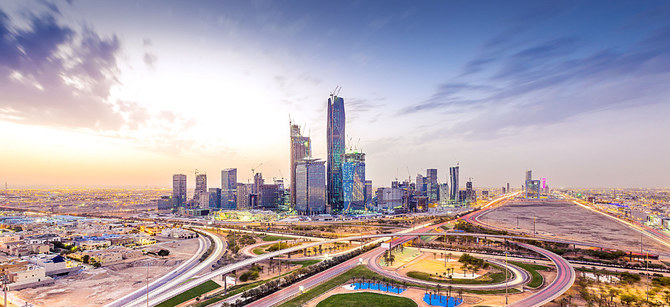RIYADH: Independent thinker Omar Henaidy — an engineer by qualification but an entrepreneur at heart — was able to create and grow Taj Holding into a vast business across the Middle East.
Today, the group encompasses brand names such as fashion retailer Beside, medical center Amaly, specialized transportation solutions M, and Mac Aerospace, to name a few.
After studying engineering and obtaining a master’s degree in supply chain management from the University of Missouri in the US, Henaidy spent several years working with international companies and managing a local business in Saudi Arabia.
However, he realized that his passion and aspirations were building something for himself with the assistance of individuals who shared his ideals and the DNA for success.
That is how Taj Holding was born.
“I have always aspired for Taj Holding to be a hub utilized by talented entrepreneurs and international investors to fulfill their dreams and be used as a platform to develop and build for their next step forward,” Henaidy told Arab News.
Expansion plan
Taj Holding currently operates across five main verticals — retail, healthcare, manufacturing, IT and defense.
“Over the past decade, we have put a lot of effort into growing our portfolio in a robust manner, which resulted in an ecosystem of companies that can work together as one unit,” he said.
Given the recent developments in Saudi Arabia, along with Vision 2030, the company is now focused primarily on retail expansion within the fashion and hospitality sectors.
Taj Holding continues to grow its large portfolio by focusing on the sustainability of the firm’s ongoing businesses in addition to starting new joint ventures.
“In Q1 2022, we signed a nine-digit-contract in the defense sector. We are signing a similar contract in Q2. In the healthcare business, we recently partnered with Priory; together, we will be opening our first clinic in Q2 of 2022,” Henaidy revealed.
The holding also has an industrial complex under construction, including three factories. In addition, it has a maintenance, repair and operations hub, known as MRO, for helicopters, which will open in 2023.
With its fashion arm Beside, the company looks to meet the desire for iconic brands and tap into the Kingdom’s massive youth demographics, with a 35-million-plus population and a median age of 32 years, observed Henaidy.
“The youth are leading the most extensive social transformation the country has ever witnessed. Beside and through its exciting brand portfolio will be able to cater to a large part of this segment’s massive potential,” he added.
The company is expanding swiftly across the Middle East. It is focused on strengthening its presence throughout the region through existing operations across Egypt, Kuwait, Qatar and Bahrain. It also plans to enter Oman for the first time in 2022, but it will continue to strengthen its presence in Saudi Arabia and the UAE.
These efforts have seen Taj triple in size over the past three years. The company has achieved this rapid growth organically through new investment opportunities. “There is immense potential for investments across several industries to the point where it is becoming a challenge to identify a specific industry, considering the strong growth our nation is experiencing,” Henaidy pointed out.
He underscored that the company’s emphasis is on the long-term potential of its investments and the contribution they provide in support of vision 2030. “Beside is a perfect example of such a model; investing in the retail sector has sustainable growth potential and thus compliments our vision.” Another testament to this strategy, Henaidy said, is the fact that “we have not made a single exit from any of our acquisitions over the past decade.”
Accelerated growth
Initiatives undertaken for Vision 2030 accelerated the growth in sectors such as tourism, culture, logistics, retail and entertainment — all of which greatly benefited from the recent social and economic evolution, he remarked.
Henaidy said the Kingdom, under the leadership of Crown Prince Mohammed bin Salman, has been on a path of exponential growth over the past few years, and “we are proud that Taj Holding was able to contribute significantly to that growth.”
The entrepreneur believes that his family and the Kingdom were also significant contributors to his success.
“I attribute my career and successful journey to my father being a role model and greatest supporter; also, I cannot leave out the vast opportunities our nation has offered me as a young Saudi entrepreneur,” said the CEO.
Henaidy’s father was an Air Force Lt. Gen. and a fighter pilot. As a leader to many young Saudi patriots, he provided his son with a significant support system and mentored him to pursue his dreams.
“I would also like to point out that success to any businessman doesn’t come without having a person who supports you and encourages you during challenging times; my beloved wife Reem is this person. We have four children, three boys and a beautiful daughter,” added Henaidy.
The CEO explained that what motivates him every day is working alongside a fantastic and energetic team.
His business slogan is tantamount to his extraordinary career: “Trusting your gut is the best business tool you’ve got,” he concluded.




















